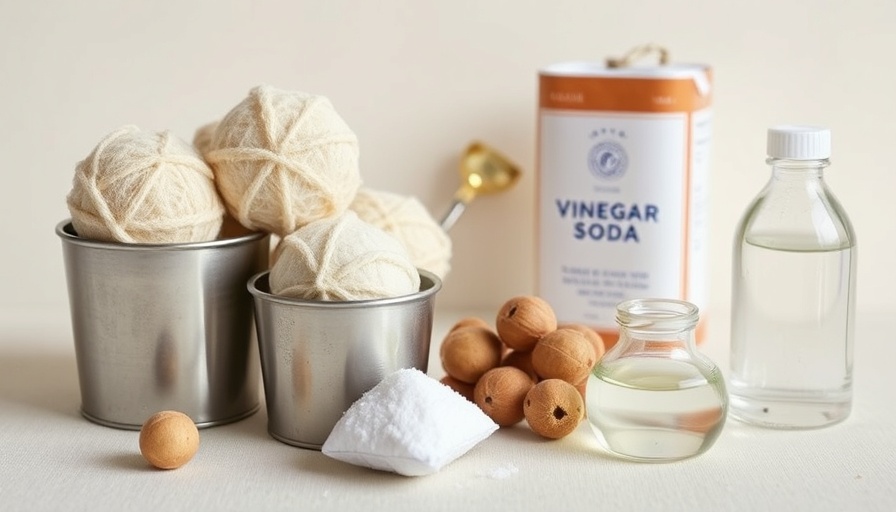
Why Switch from Fabric Softeners to Natural Alternatives?
Ditching fabric softener is not just a trend—it's a conscious choice towards embracing eco-friendliness and personal health. Conventional fabric softeners are often laden with chemical fragrances and harsh ingredients that can harm both your clothes and your well-being.
Despite the soft feel they promise, synthetic fabric softeners do more harm than good. They can build up on fabrics, reducing their absorbency and natural breathability, potentially leading to skin irritations and allergic reactions. Moreover, they increase the flammability of clothes, posing safety risks.
The Healthier, Greener Choice: Natural Fabric Softener Alternatives
Are you ready to transform your laundry routine for the better? Here are seven natural fabric softener alternatives that will revolutionize how you care for your clothes:
- Wool Dryer Balls: These eco-friendly balls not only cut drying time by up to 25% but also soften fabrics, reduce wrinkles, and eliminate static by agitating fibers without harmful chemicals.
- Vinegar: A surprising powerhouse, vinegar acts as a natural fabric softener and also helps prevent static. Just add half a cup to the rinse cycle for fresh-smelling, soft clothes.
- Baking Soda: This versatile ingredient can also soften fabrics and eliminate odors. Simply toss half a cup into your wash cycle alongside your detergent.
- Organic Essential Oils: For those who love a fresh scent, adding a few drops of organic essential oils to dryer balls offers a natural fragrance without the synthetic chemicals.
- Soap Nuts: These natural cleaning agents release saponins when wet; place a few in a cotton bag and throw them in the wash to clean and soften your laundry.
- Epsom Salts: Combine Epsom salts with baking soda to create a fabric softening mix that also acts to freshen your laundry.
- Vegetable Glycerin: When mixed with water and essential oils, this can serve as a gentle fabric softener—just add to the rinse cycle or dispenser.
Bringing the Power of Science to Softening Fabrics
The underlying chemistry of fabric softeners highlights why alternatives work better. Conventional softeners create a chemical layer that can break down the functional properties of fabrics over time, making them less effective. However, the natural alternatives listed are safe, reusable, and free from harmful additives.
Environmental Impact: Why Natural Choices Matter
Switching to natural fabric softeners isn't merely about personal health; it's about making sustainable choices for our planet. Traditional fabric softeners contribute to significant environmental issues, from their production processes to disposal, ultimately polluting water systems. By opting for natural materials, you're reducing your carbon footprint while promoting a cleaner environment.
Practical Tips for Implementing Natural Alternatives
Transitioning from chemical fabric softeners to natural alternatives doesn’t require complex adjustments. Here are practical tips to make the switch seamless:
- Start with Wool Dryer Balls: If you’re unsure where to begin, wool dryer balls are a straightforward introduction and can easily replace your existing routine.
- Experiment with Vinegar: Test vinegar in smaller loads first—its capabilities are often underestimated!
- Create Custom Scent: Mix organic essential oils that resonate with you. Lavender, lemon, or eucalyptus can make laundry day more enjoyable.
Conclusion: Join the Movement Towards Healthier Laundry Practices
Ditching fabric softeners is not just a change in your laundry routine; it's a philosophy of living more sustainably and healthily. By incorporating simple natural alternatives, you're taking substantial strides towards a greener home.
Ready to transform your laundry experience? Make the leap today, try these alternatives, and enjoy the countless benefits they have to offer—not just for your clothes, but for your health and the environment.
 Add Row
Add Row  Add
Add 




 Add Row
Add Row  Add
Add 

Write A Comment